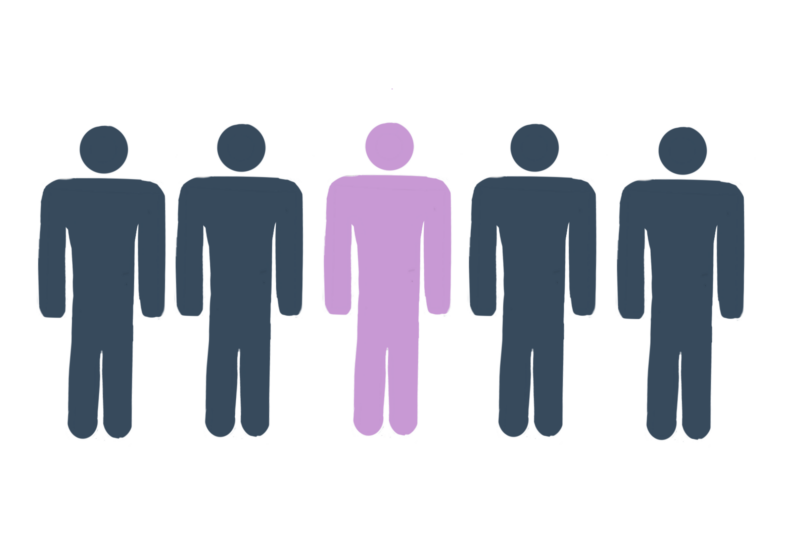You enter the movie theater, ready to convince yourself that a true movie-going experience requires a small popcorn and a drink, no matter what your wallet has to say about it. But something distracts you. Something… pink. Suddenly, the pink spreads. Your peripheral vision is filled with splotches of that grotesque color, as you realize in disgust that all these sick people are here to watch “Barbie”.
You shake your head in pity at these people buying into a silly cash-grab of a film that you already somehow know is the stupidest movie ever made. In fact, you must also go see “Barbie” to tell the masses how bad this movie really is. You sigh. Some sacrifices are truly necessary.
You grab your overpriced popcorn and drink and head inside, ready to be the only voice of reason in a sea of mindless pink.
Or at least, this is the sort of monologue I imagine a lot of anti-”Barbie” individuals had, give or take a few dramatics. As someone who has the capability to enjoy media while being able to sensibly critique it, I am here to say that the controversy surrounding the movie never had anything to do with the movie itself.
“Barbie” was one of the most anticipated movies of the summer. It did excellent at the box office and was widely applauded as a successful film. Upon its release, however, it unleashed a havoc of warring opinions online — some political, some not.
People were hard-pressed to defend its every decision, whether it be the casting, plot, soundtrack, advertising, and so on. On the flip side, there were people ready to hate on the movie no matter what occurred in the film, drawing on insane conclusions to support their points.
The easiest group to address is the male-dominated hoard of “Barbie” haters. A common criticism that arose was that “Barbie” promoted hate against men. To that, I say, did you even watch the movie? Or rather, have you watched any movie ever made?
The movie industry boasts an extensive history of portraying women as weak, helpless, useless, dramatic, and easily side-lined. You’re telling me one film that does the same thing to men shatters your entire worldview?
Beyond that imbalance, “Barbie”’s depiction of men in the movie is made to parallel the typical treatment of women in cinema as well address how the patriarchy harms everyone. The only thing this opinion reveals is an inability to understand a simple message and a desire to condemn women for everything they do.
Quite a few women did also speak out against the feminist propaganda of Barbie, claiming that women aren’t actually mistreated in society because they themselves have allegedly never faced any gender discrimination. Everything in the film was a mere exaggeration of what it means to be a woman, and honestly, this take is even worse than the last one I mentioned.
Personally, I have never broken my leg. But I’m not going to tell someone who has a broken leg, “It’s not that bad. You’re just making a big deal out of it, so you don’t get a right to complain about it.”
However, these foolish arguments have motivated many Barbie supporters to vehemently defend the movie against every criticism. People refuse to acknowledge that the movie had any shortcomings, and even if you had any valid complaints about it, they decided you were just being a hater.
I can safely say that I enjoyed the film, and that it had a very amusing and creative approach to its subject matter. It was memorable, heartfelt, and had a talented cast and crew. That being said, presenting women’s daily struggles in a very long, albeit moving, monologue was not the approach I would’ve taken. I would’ve also preferred a more fleshed-out conversation between Barbie and Ken that showed them coming to an understanding of one another.
At the end of the day, the movie had the intention of being a fun watch with a meaningful message about life and womanhood, and it executed that well. It was not a perfect movie, nor did it single-handedly eradicate misogyny and sexism.
However, if a film like this can make such an impact on so many women (and many others as well), making them feel seen, inspired, and comforted even for just the duration of the film, then as a society, why do we have to take that joy away from them?
That’s what the discourse on “Barbie” boils down to. When the voices desperately defending the film against blind hate overwhelm all other viewpoints, this leads to more nuanced critiques getting, in turn, blindly ignored, or worse — misinterpreted as an attack on content made to uplift oppressed groups of people. “Barbie” has been denied the ability to be treated like a general movie, and has instead become a tool to promote certain groups’ misguided agendas.
No one says you need to adore films like this, or hide what you don’t like about them. But it’s crucial to know the difference — and acknowledge it within yourself — are you critiquing with a purpose, or hating just to hate?
Critical thinking sold separately.






